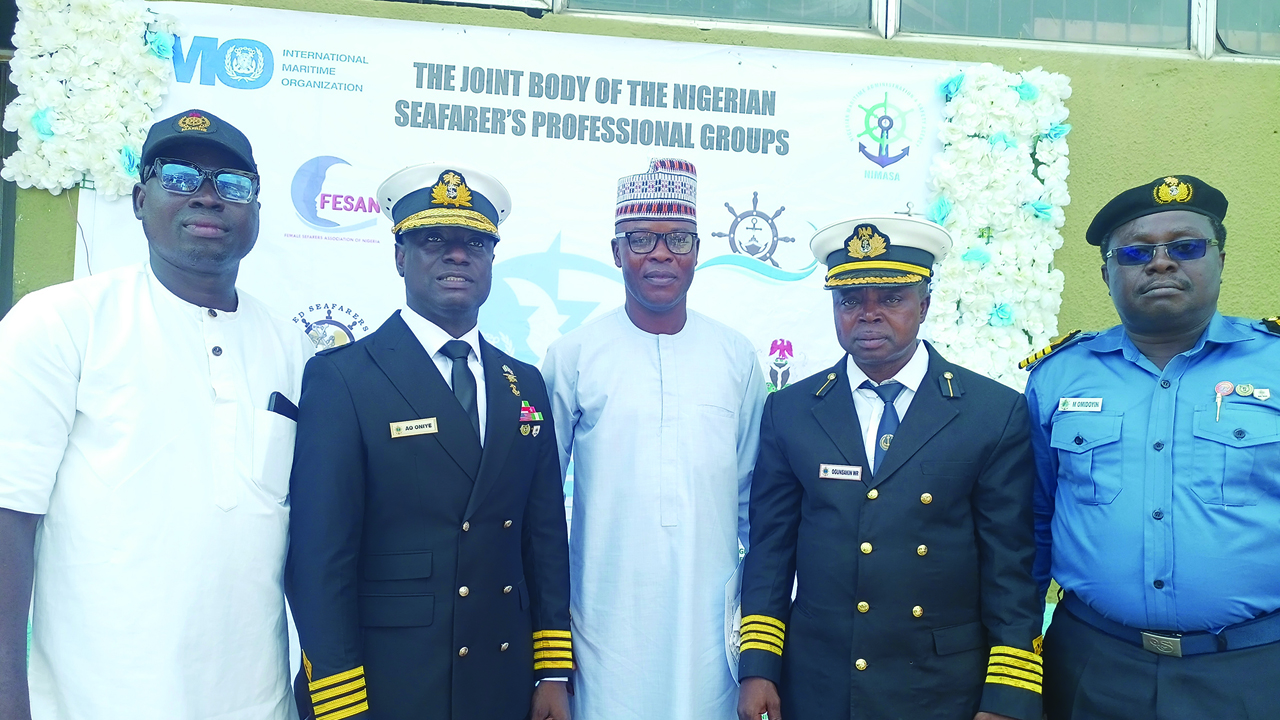
Nigerian seafarers have said investing in local shipbuilding to participate in international trade will generate over $100 billion for the economy and create about 15,000 jobs yearly to bridge the unemployment gap in the maritime industry.
This is against the backdrop of encouraging ship building and development to revive the activities of steel rolling and foundries at Ajaokuta, which will adequately contribute to the Gross Domestic Product (GDP) of the economy.
This was disclosed during the 2023 International Day of Seafarers, marked by the Joint Body of Nigerian Seafarer’s Professional Group in Lagos, with the theme: ‘MARPOL at 50 – Our Commitment Goes On…’
The body comprises Female Seafarers Association of Nigeria; Concerned Seafarers Forum; Merchant Seafarers Association of Nigeria; Maritime Professional Forum; Nigerian Association of Master Mariners; Great Mariners; Nigerian Seafarers Connect; Alumni of Maritime Academy of Nigeria and Nigeria Maritime Pilot Association.
The Secretary-General of the Merchant Seafarers Association of Nigeria (MESAN), Captain Alfred Oniye, said shipbuilding in the country will not only generate revenue but will create over 15, 000 jobs and revive the Ajaokuta steel industry.
Oniye called for the utilisation of the $360 million Cabotage Vessel Financing Fund (CVFF) for the empowerment of ship-building capacity in the country, rather than importing them and foreign exchange.
He said the Coastal Inland Shipping Act 2003, also known as Cabotage Act, stipulates that vessels must be built and developed in the country, noting that importation of vessels negates the provisions of the act.
Findings revealed that purchasing a standard and state-of-the-art cargo vessel costs not less than $50 million to $100 million in the international market.
“Do you know what it means to pump $50 million into shipbuilding in Nigeria? The ship you will buy outside for such an amount, you will use that money to build it here because we have the technicalities. Shipbuilding in Nigeria will wake up the Ajaokuta steel industry because we will not need to import iron and steel.
“If the law says any ship that would sail within the Nigerian waterways must be built here, so why are we importing ships into the country? We are already building ships in Nigeria; all we need is to fine-tune the technical aspects. The approved CVFF should not go out. If the ships are built here, manned and owned by Nigerians, it will create jobs here, so, if we are taking such money out, it is like taking money to buy unemployment to be shipped into Nigeria,” Oniye explained.
The Chairman, Organising Committee of the event, Captain Williams Ogunsakin lamented the Federal Government’s inability to support vessel ownership and production in the country.
According to him, the Nigerian-owned vessels sailing on local and international waters over 25 years, have all liquidated without the government’s intervention to sustain or revive them.
“Nigeria suddenly does not have ships again. I can tell you about 25 years ago, the country had a National shipping line, and other individuals also had their own vessels. Those are foreign going ships that carry containers outside the country, flying Nigerian flags all over the world, but today we don’t have them again. So, instead of the maritime industry bringing a source of revenue to the country to boost our economy, it has remained a drain pipe, draining our economy,” he said.
He said this has left a huge gap in the employment of seafarers in the country, as about 80 per cent have remained jobless.
Ogunsakin urged the government to revive the country’s shipping industry as it will create thousands of jobs and generate revenue to the country.
Ogunsakin appealed to President Bola Tinubu to extend the student loan policy to seafarers, who are in dire need of such loans to further improve their limited certificate and qualifications.
Meanwhile, the International Chamber of Shipping (ICS) network global campaign to drive seafarer recruitment, recently disclosed that an estimated 90,000 STCW (International Convention on Standards of Training, Certification and Watchkeeping for Seafarers) certified officers are needed by 2026 to operate the world merchant fleet.
“Nigerian seafarers are not getting paid enough, you just collect salary and you use everything to renew your certificate, and you are not even guaranteed of getting the job back. Let them bring this loan to seafarers,” Ogunsakin pleaded.






